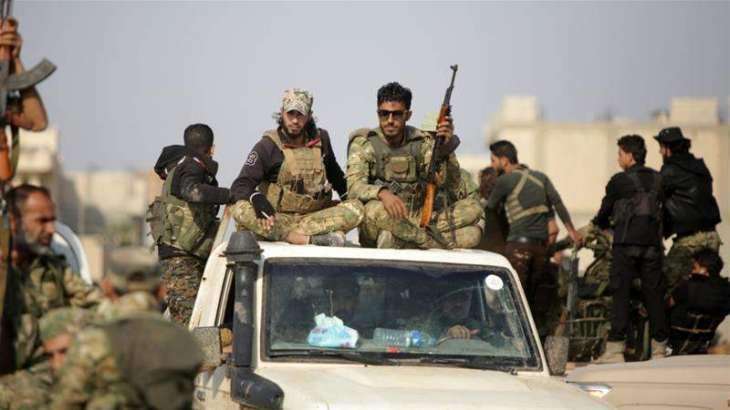US sanctions against Damascus under the Caesar Act may have a disastrous effect on the economic activities of the Kurdish-led de facto autonomous administration of northeastern Syria, even though the region might be exempt from the sanctions, Riyad Dirar, the co-chair of the Syrian Democratic Council (SDC), the political wing of the Kurdish-led Syrian Democratic Forces, told Sputnik
GENOA (Pakistan Point News / Sputnik - 04th July, 2020) US sanctions against Damascus under the Caesar Act may have a disastrous effect on the economic activities of the Kurdish-led de facto autonomous administration of northeastern Syria, even though the region might be exempt from the sanctions, Riyad Dirar, the co-chair of the Syrian Democratic Council (SDC), the political wing of the Kurdish-led Syrian Democratic Forces, told Sputnik.
On June 17, the US Caesar Syria Civilian Protection Act of 2019 came into effect and the United States imposed the first package of sanctions under it. The Treasury Department and State Department released 39 designations as what they called the beginning of a sustained campaign of economic and political pressure on Syrian President Bashar Assad. The Caesar Act requires the US administration to impose new sanctions on anyone who does business with or provides financing to the Syrian government, including security services and the country's central bank.
"The self-administration [Kurdish-led Autonomous Administration of Northeast Syria] has been moving with a degree of freedom in distributing energy and food like grains, and tried to relieve the hardships for the Syrian people through these relations. Perhaps, in the coming stage, the sanctions will reach all those that interact with the regime, and this may bring such activity to an end. This issue has a disastrous effect on internal economic activity and the movement of finances," Dirar said.
He explained that the Syrian pound had become so weak that it could not be used as a reliable currency in commercial affairs, especially with the outside world.
"Perhaps currencies such as the dollar or the euro will be used, but this also requires some financial capabilities and also the capability of interacting with commercial sides. This issue is currently being studied, we cannot make a final decision now on how things will be," Dirar said.
Last week, media reports suggested that the Kurdish-led authorities in northeastern Syria had been in talks with their military allies in the US-led coalition about an exemption from the US sanctions that had an impact on the Kurdish areas.
"In truth, the sanctions include the regime and those that interact with it and does not include the region that is under the Autonomous Administration as it does not include other regions under Syrian opposition administration. This way, the idea of the restrictions is to limit interactions with the regime that may help it survive and continue ... The Americans have placed one condition on everyone, it is to not interact with the regime, and this does not include other individuals of the Syrian society, because there must be a way, a means for the Syrian people not to be affected by these decisions in questions of food and medicines. This issue must be studied very carefully," Dirar suggested.
The United States is working on the additional packages of sanctions against Damascus in line with the Caesar Act, James Jeffrey, US special representative for Syria engagement, said at a press briefing earlier this week.
Syrian Foreign Minister Walid Muallem said last week that Damascus had already started to implement some measures in an effort to counter the new US sanctions, noting that the country wanted to turn them into "an opportunity to advance the national economy."
Russian President Vladimir Putin said on Wednesday after the video conference with Turkey and Iran on the Syrian issue that Washington's sanctions against Damascus have no legal ground and contribute to the existing problems of the war-torn country and undermine its economy.




